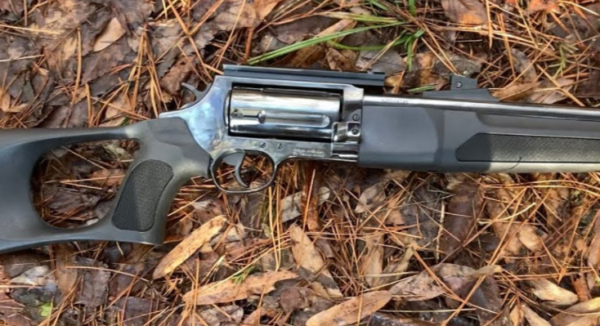Hi, dear visitor welcome to our blog.
Remington 760 Gamemaster is one of the best brands in the world of guns.
But some people face problems with this model.

In this guide, we explain 15 common problems of this model with unique solutions. So let’s start now.Remington 760 Gamemaster Problems
Remington 760 Gamemaster Problems
The Remington 760 Gamemaster is a vintage firearm that’s generally reliable, but not without its occasional issues.
Some users report problems related to ejection, where spent casings aren’t properly thrown clear of the firearm.
This can result in what’s known as a “stovepipe” malfunction. Others find the slide action to be less smooth than contemporary models, and the older age of these rifles may necessitate more regular maintenance.
1. Frequent Jamming Issues


Cause
The frequent jamming issues in the Remington 760 Gamemaster often stem from improper maintenance and usage of low-quality ammunition.
Inadequate cleaning can lead to the build-up of debris in the rifle’s chamber and barrel, hindering the smooth functioning of moving parts.
Concurrently, low-grade ammunition tends to leave more residues, exacerbating the problem.
Solution
To rectify these jamming issues, it is essential to clean your firearm periodically and use high-quality ammunition.
Regular cleaning helps remove any debris or build-up from the rifle, ensuring smooth operation.
Additionally, high-grade ammunition leaves less residue, reducing the likelihood of jamming issues.
Always remember, that upkeep and quality material are vital to the optimal performance of your Remington 760 Gamemaster.
2. Misfiring Problems
Cause
One of the common causes of engine misfires can be the ignition system.
This consists of the spark plug, ignition coil, and spark plug wire.
If any of these components malfunctions, it can lead to an incomplete combustion process causing the engine to misfire.
Faulty spark plugs, worn-out ignition coils, or defective spark plug wires are often the culprits.
Solution
The solution to misfiring problems usually involves replacing the faulty components.
Start with inspecting and replacing spark plugs as they are the most common cause and are relatively easy to replace. If the problem persists, move on to the ignition coil.
If checking spark plugs and ignition coils does not resolve the issue, inspect the spark plug wires. Remember, regular vehicle maintenance can prevent many of these issues.
3. Difficulty in loading
Cause
The difficulty in loading a webpage typically arises due to several reasons. It could be due to a poor internet connection, server issues, or an outdated browser.
Additionally, heavy content such as high-resolution images and videos can also slow the page loading speed.
In some cases, the problem lies in the coding of the webpage itself. Speed is paramount in user experience. So, if your webpage is slow to load, it can discourage users from continuing their journey on your site.
Solution
To resolve this issue, start by checking your internet connection and updating your browser.
If the problem persists, consider reducing the size of your webpage by optimizing images and removing unnecessary plugins or scripts.
Furthermore, if server issues are causing the slowdown, you might need to upgrade your hosting plan.
Regularly monitoring your website’s speed will help in identifying any potential issues early.
Remember, a smoothly operating website not only enhances user experience but also boosts your site’s ranking in search engine results.
4. Inefficient Ejection of Cartridges
Cause
Often, the issue of inefficient ejection of cartridges is attributed to accumulated dirt or debris in the ejection port or malfunctioning ejector springs.
Over time, residue from cartridges and environmental factors such as dust or sand can clog the ejection port, hindering the smooth ejection of cartridges.
On the other hand, worn-out or weakened springs may not provide the necessary force for efficient ejection.
Solution
Regular cleaning and maintenance of the firearm are crucial. Use a quality gun cleaning kit to remove any dirt or debris from the ejection port regularly.
If the problem persists, it may indicate a more serious issue like a failing ejector spring.
It is advisable to seek assistance from a professional gunsmith for a thorough examination and potential replacement of the ejector spring.
Regular maintenance and professional oversight can ensure optimum performance and longevity of your firearm.
5. Trigger Mechanism Malfunctions
Cause
Misalignment or damage to the trigger mechanism is often the primary cause of malfunctions.
This can be due to several factors such as excessive use, inadequate maintenance, or exposure to harsh environmental conditions.
The trigger mechanism’s intricate components necessitate meticulous care and handling for smooth operation.
Solution
The most effective solution is regular and thorough maintenance of the trigger mechanism.
This includes timely cleaning, proper lubrication, and periodic checks for any wear or damage. In cases of severe damage, replacement of the faulty components or even the entire mechanism may be necessary.
Prompt and proper action can prevent further damage, ensuring the longevity and reliability of the mechanism.
6. Barrel Heating Issues
Cause
The core reason behind barrel heating issues lies in improper temperature control or inconsistencies in the heating process.
This could be due to several factors like inadequate insulation, faulty heating element design, or irregular maintenance schedules.
Correct temperature management is crucial in ensuring optimum barrel performance and elongating its life span.
Solution
The most effective solution to combat barrel heating issues would be a comprehensive system check, focusing on the heating elements, insulation, and temperature control mechanisms.
It’s essential to establish regular maintenance schedules and ensure the correct design of the heating element.
Adopting these measures would significantly decrease the likelihood of facing barrel heating issues, ensuring efficient and trouble-free operations.
7. Inaccuracy in Long-Range Shots
Cause
The accuracy of long-range shots can be affected by several factors, mainly linked to the shooter’s technique, environmental conditions, and equipment quality.
Poor shooting form, including unstable stance or grip, incorrect sight alignment, or hurried trigger pull, can significantly compromise accuracy.
Unfavorable weather conditions such as high winds or rain can also impact the bullet trajectory.
Lastly, inferior equipment or inconsistent ammunition can lead to unpredictable results.
Solution
To rectify the inaccuracy in long-range shots, it’s crucial to address these root causes. Proper training and practice can help refine shooting techniques, enhancing the shooter’s skill and precision.
Being aware of and adapting to environmental conditions can mitigate their impact on the shot.
Moreover, investing in high-quality equipment and consistent ammunition can significantly improve accuracy, ensuring reliable and consistent performance.
8. Unintended Discharge
Causes
Unintended discharge in firearms is often a consequence of improper handling or mechanical failures.
Negligent practices, like not actively engaging the safety mechanism, or keeping a loaded firearm without supervision, often lead to accidental discharges.
Mechanical issues can arise from a faulty design or wear and tear over time.
Solutions
The solution primarily lies in regular maintenance and safety education. It is imperative to always handle firearms with utmost respect for their potential danger.
Regular inspection and servicing of firearms can prevent mechanical failures.
Comprehensive training on the safe handling, storage, and use of firearms is crucial to prevent negligent discharges. Remember, safety should always be the first priority.
9. Inconsistent Bolt Operation
Cause
Inconsistent bolt operation often results from excessive wear, inadequate lubrication, or improper installation.
Excessive wear can occur over time due to regular use and can lead to inconsistencies in operation.
Inadequate lubrication can cause friction between the bolt and the mating parts, affecting the smoothness and reliability of the operation. Improper installation, such as misalignment or over-tightening, can also result in inconsistent bolt operation.
Solution
To alleviate this issue, begin by inspecting the bolt for signs of wear. If wear is detected, consider replacing the bolt to ensure optimal performance.
Secondly, ensure the bolt is adequately lubricated to reduce friction and facilitate smooth operation. Use a quality, industry-approved lubricant for this purpose.
Finally, if the bolt is improperly installed, re-install it correctly following the manufacturer’s guidelines.
Regular maintenance and correct installation practices can significantly improve bolt operation and longevity.
10. Magazine Release Failures
Cause
Magazine release failures often occur due to a weak or broken magazine release spring, improper magazine placement, or built-up dirt and grime within the magazine well.
A compromised release spring can’t apply the necessary force, causing the magazine to fail to disengage.
Improper alignment of the magazine can also prevent its smooth release. Lastly, the accumulation of dirt or grime inside the magazine well can obstruct the release pathway.
Solution
To rectify magazine release failures, consider replacing a weak or broken magazine release spring. This is a common and relatively simple fix.
Make sure to properly align the magazine during insertion to ensure smooth release.
Lastly, make a habit of regularly cleaning your firearm, particularly the magazine well, to prevent dirt and grime build-up. Regular maintenance is the key to optimal firearm performance and longevity.
11. Inadequate Maintenance Accessibility
Cause
Inadequate maintenance accessibility primarily stems from poor design and lack of foresight during the initial stages of infrastructure planning.
This situation can lead to locations that are difficult to reach or inspect, thereby hindering routine maintenance tasks.
Poor accessibility restricts the timely identification and rectification of issues, escalating minor glitches into serious defects.
Solution
Addressing inadequate maintenance accessibility involves rethinking design strategies and incorporating accessibility into the early stages of planning.
It’s essential to make maintenance tasks as straightforward as possible.
This might involve creating easily accessible panels, designing equipment so parts can be reached without disassembly, or incorporating modern technology like drones or robotics for hard-to-reach areas.
By foreseeing and planning for maintenance at the outset, it is possible to significantly reduce long-term operational costs and enhance overall system longevity.
12. Unstable Iron Sights
Cause
The instability of iron sights can primarily be attributed to a lack of proper maintenance and handling.
Damages incurred during transportation or rough usage can affect the alignment, causing them to be unsteady or misaligned.
Regular usage without timely cleaning and maintenance can also lead to wear and tear, further contributing to instability.
The main reasons for unstable iron sights are mishandling lack of maintenance, and infrequent cleaning.
Solution
To rectify the issue of unstable iron sights, regular and meticulous cleaning routines should be established.
It’s also essential to handle the gear with care during transportation and operation to prevent damage.
If the instability persists despite these measures, it may be necessary to consult a professional or consider replacing the iron sights.
Effective solutions include regular cleaning, careful handling, professional consultation, and possibly replacement.
13. Excessive Recoil
Cause
Excessive recoil is predominantly caused by the overpressure created in the firearm chamber when a round is discharged.
The force of this overpressure pushes back against the firearm, leading to a substantial backward momentum, known as recoil.
High-powered ammunition, lightweight firearms, or improper grip can also contribute to increased recoil.
Solution
Managing excessive recoil is pivotal for accuracy, comfort, and safety. Primarily, using ammunition with less powder can result in less recoil.
Equally important, proper grip and stance, with a focus on absorbing the recoil, can significantly reduce its impact.
Besides, consider using firearms with more weight as they tend to produce less perceived recoil. Remember, training and practice are the keys to effectively control recoil.
14. Stock Cracking
Cause
“Stock Cracking” is often due to external market fluctuations, internal management issues, or unforeseen economic events.
These factors may result in a sudden drop in a company’s stock value, leading to panic selling and further depreciation of the stock.
Solution
The solution to “Stock Cracking” lies in thorough market research, diversified portfolio management, and consistent monitoring of the economic landscape.
Investors are advised to avoid panic selling and instead make decisions based on thorough analysis and foresight.
Through these methods, the impacts of “Stock Cracking” can be significantly mitigated.
15. Rust and Corrosion Problems
Cause
Rust and corrosion typically occur due to the prolonged exposure of metal surfaces to moisture and air, creating an electrochemical reaction known as oxidation.
This reaction causes the metal to deteriorate gradually, resulting in the reddish-brown substance we commonly refer to as rust.
The primary cause of rust and corrosion is the combination of moisture, oxygen, and metal, especially in the presence of salts or acids.
Solution
To prevent rust and corrosion, the key is to control or eliminate the exposure of metal to corrosive environments.
This can be achieved through several methods, including the use of protective coatings, regular maintenance, and storing metals in a dry environment.
Employing corrosion-resistant metals and alloys, using protective coatings, and performing regular inspections for early detection are effective solutions to combat rust and corrosion.
Conclusion
Maintaining transparency, reliability, and consistency in our actions and communications is key to securing trust and establishing meaningful relationships, whether personal, professional, or societal.
These principles serve as the bedrock of successful collaborations, fostering an environment of mutual respect and understanding.
Thus, it’s vital to imbue our actions and words with these values to ensure fruitful and long-lasting connections.
FAQs
Is the Remington 760 accurate?
Yes, the Remington 760 is known for its accuracy, especially when properly maintained and used with quality ammunition.
How old is a Remington Gamemaster Model 760?
The Remington Gamemaster Model 760 was introduced in 1952, so its age would depend on the specific production year of the model in question.
What is the effective range of a Remington 760?
The Remington 760 has an effective range of approximately 300 yards, although this can vary depending on specific conditions and ammo used.
When did Remington stop making the 760?
Remington ceased production of the Model 760 in 1980, replacing it with the updated Model 7600.
Remington Sportsman 58 Problems


As the founder and owner of the domain “mygunsgeek.com”, I bring to the table a deep passion for firearms, combined with a strong commitment to sharing this knowledge with a wider audience. With years of experience exploring the inner workings of various firearms, from pistols to rifles, I have cultivated a vast expertise in this field. This has enabled me to create a platform that serves as a trusted resource for gun enthusiasts, providing comprehensive reviews, advice, and insights into the latest trends and advancements. I am dedicated to ensuring that my content is both informative and engaging, helping my readers make informed decisions about their firearm choices. For any inquiries or suggestions, feel free to reach out to me at wwwfffwww117@gmail.com. Your feedback is invaluable in shaping the content and direction of mygunsgeek.com.


